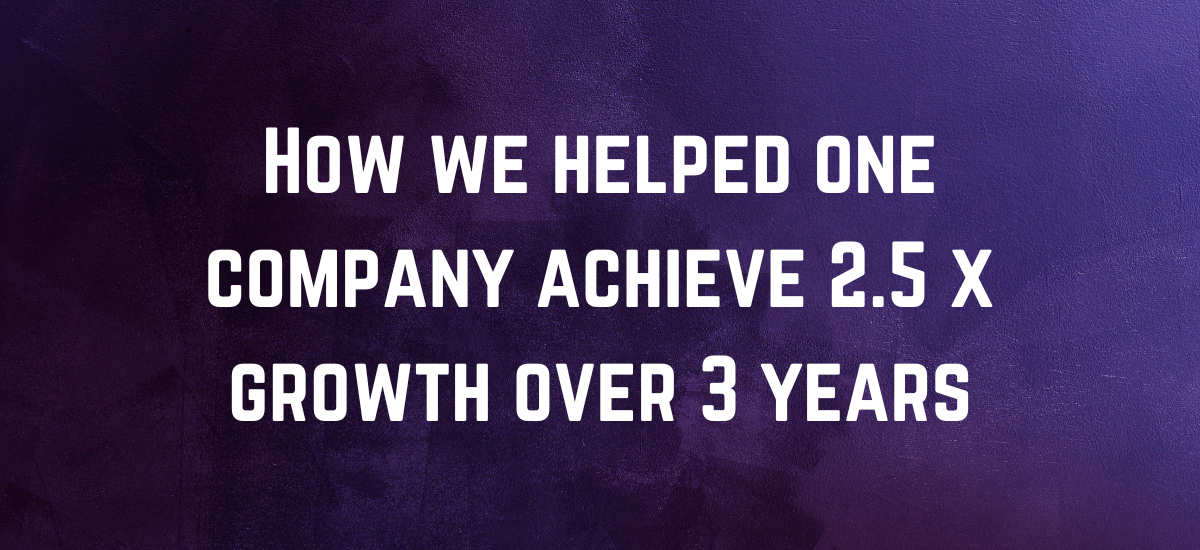by deborah
Share
by deborah
Share

According to 60 per cent of marketers, inbound search engine optimisation (SEO) is their greatest source of quality leads.
No matter what kind of fintech company you run, you want to generate more leads, don’t you? If so, SEO should be a top priority for you and your marketing team.
If you’re new to the SEO world or haven’t been seeing great results from your efforts lately, you’re in the right place. Discover seven of the most common fintech SEO challenges (with tips on how to combat them) below.
1. Your Website Is Slow
Think about the last time you visited the website of a company you were thinking about working with. Would you have stuck around to learn about their services if it took several seconds for their website to load? For most people, the answer is “no.”
The average internet user doesn’t want to wait more than a second (literally, one second) for a website or specific webpage to load.
Google has even found that the chance of a bounce (someone leaving your website after visiting just one page) goes up by 32 per cent when the page load time increases from one to three seconds.
If your website loads slowly, a technical issue is likely to blame. Check with your website host or development team to evaluate the backend, identify the source of the issue, and find a solution.
2. You Don’t Have Enough Positive Reviews
Maybe a lot of past clients haven’t said negative things about your company’s financial services. However, if you don’t have a lot of positive reviews, that can also interfere with your search engine ranking.
An astounding 99.9 per cent of customers read reviews when shopping for products or services online. If someone learns about your fintech business but doesn’t see many (or any) positive reviews, they might think twice about working with you because there’s no social proof validating your services.
If you need more positive reviews, start reaching out to past customers or clients and asking for them.
In your email newsletter, for example, include a blurb about how much you’d appreciate a review. Provide a link to Google reviews, too, to make it easier for the reader to follow through and help you out.
3. You Have Duplicate Content on Your Site
Duplicate content can also negatively affect our search engine ranking. If you’re saying the same thing across multiple pages, search engines will pick up on that (whether it’s intentional or not).
There’s no direct penalty for duplicate content, but it can still hurt your position on the search engine results page. Search engines like Google typically do not show the same content on a SERP. Instead, they will choose the page that seems the most relevant (even if it’s not the one that you think is most relevant to your business or your target audience).
Consider using a duplicate content-checking tool like Copyscape to identify repeated phrases or paragraphs across your site. Then, make updates to ensure all content is original.
4. Your Content Is Outdated
Search engines reward websites with up-to-date content and often grant them a higher position on search engine results pages. Keep in mind, too, that outdated content can also hurt your credibility, especially when you work in an industry as fast-paced and frequently changing as the fintech space.
Conduct regular content audits to check the quality of your content and identify outdated information. Then, update the outdated content as needed to ensure you’re always providing the latest and most relevant information to your audience.
5. Your Website Isn’t Mobile-Friendly
Over half (58.16 per cent) of global web traffic comes from a mobile device.
If your website isn’t friendly, people will be more likely to click away after encountering the first page. These actions increase your website’s bounce rate, which further impacts your search engine ranking.
This situation is another one in which it’s helpful to talk to your web developer.
Show them where your website falls short from a mobile perspective (for example, do you have to pinch and stretch the screen to read a blog post or fill out a contact form?) and work with them to come up with a plan to make the site more mobile-friendly.
6. You Have Low-Quality Content
The content on your website, whether it’s in the form of blog posts, white papers, eBooks, or videos, has a significant impact on your overall search engine ranking.
It’s not enough just to have a lot of content on your site. It also needs to be high-quality content that provides some kind of value to your audience.
Talk to them about the latest fintech trends, explain how your app can help them save time or manage their money more efficiently, or provide educational content on saving or investing. Whatever topic you decide to cover, make sure you’re providing actionable steps that readers (or viewers or listeners) can take to improve their lives in some way.
7. You Aren’t Thinking About Local SEO
Whether you sell an investment app for young professionals or a payment processing platform for small businesses, look for ways to include a local component into your SEO strategy. Using location-specific terminology can help you stand out on search engine results pages.
Because there’s less competition for location-specific terms (like “Dublin financial advisor”), you’ll have an easier time ranking toward the top of the page, which will increase the likelihood that people will click on your website and learn more about your fintech company.
Fight Back Against These Fintech SEO Challenges Today
Fintech SEO can be challenging, but it’s certainly not impossible to figure out. If you follow the tips shared above, you can overcome the obstacles holding your business back and get your website in front of your target clients.
Do you need more help with fintech SEO? If so, Fintech Content Marketing is ready to assist you. Contact us today to get started!





